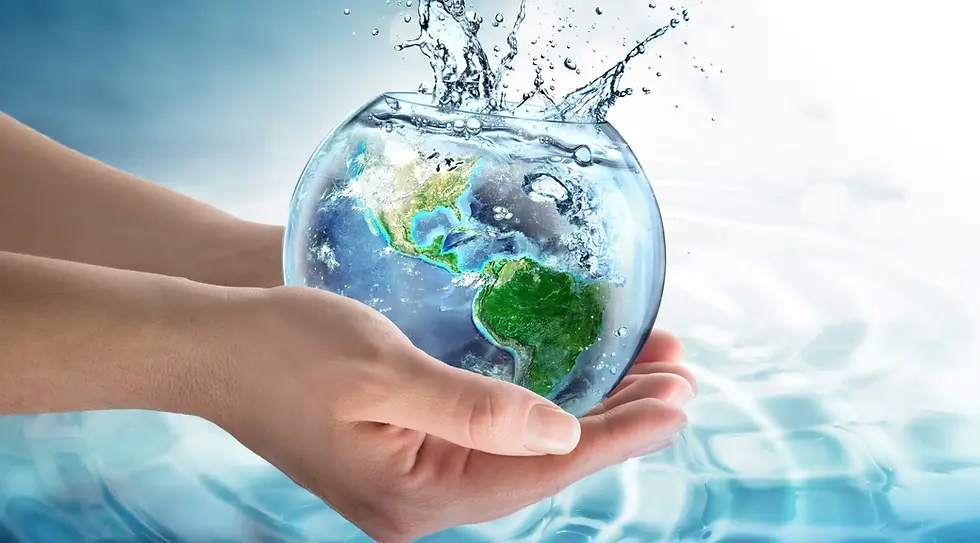Beyond Thirst: How Clean Water Shapes a Child’s Future
- Terra Water Indonesia
- Jul 10, 2025
- 3 min read
In many rural Indonesian communities, children often start their school day feeling tired, dehydrated, and sometimes unwell. The water they drink at school can silently impact their health, education, and long-term future.

The Hidden Crisis: Diarrhea’s Toll on Children
Contaminated water and inadequate sanitation are major contributors to diseases such as cholera, diarrhea, dysentery, hepatitis A, typhoid, and polio. When water and sanitation services are absent, inadequate, or poorly managed, individuals are exposed to preventable health risks.
Waterborne illnesses like diarrhea and intestinal parasites are among the leading killers of children under five years of age worldwide. An estimated 1 million people die each year from diarrhoea linked to unsafe drinking water, sanitation, and poor hygiene practices. Many of these deaths are entirely preventable. In fact, UNICEF highlights that basic interventions such as safe drinking water, sanitation, and hygiene could prevent 300,000 children's deaths.

School, Interrupted: Health and Learning Go Hand in Hand
When children contract diarrheal infections:
They miss school due to sickness.
Their cognitive development suffers from dehydration and malnutrition.
Families lose income when parents stay home for caregiving.
This creates a ripple effect: lower academic performance, increased financial strain, and reduced opportunities. Girls are especially affected, as they are often tasked with collecting water, which can take time away from their education or prevent them from attending school altogether.
Access to education is essential for helping children reach their full potential and opening the door to lifelong opportunities. When children are healthy and able to attend school consistently, they are more likely to succeed and build better futures for themselves and their families.
Why Boiling Alone Is Not Enough
While boiling is widely practiced and an effective method to make water safer to drink, it has significant limitations:
Kills microbes—but can’t remove chemical or physical contaminants
Boiling effectively kills bacteria, viruses, and parasites. However, it does not remove chemical pollutants like heavy metals (lead, mercury, arsenic), pesticides, volatile organic compounds, industrial chemicals, or microplastics. In fact, as water evaporates, boiling may concentrate these harmful substances.
Does not prevent recontaminationOnce boiled, water can still become unsafe during the cooling, transfer, or storage process—especially if it’s poured into jars, buckets, or containers that aren’t thoroughly cleaned.
Resource-intensive and unsustainable
Many families must burn wood, gas, or kerosene daily to boil water, which is time-consuming, costly, and laborious.
Boiling makes water microbiologically safe, but it does not remove chemical pollutants, or sediment, or prevent recontamination, and it only effectively reduces microplastics when combined with filtration. To ensure truly safe drinking water, it is essential to pair filtration with proper handling and storage practices.

Ceramic Filters: A Smart and Sustainable Alternative
Terra Water Indonesia’s ceramic filters use micro-porous ceramic walls to remove bacteria and protozoa from drinking water. When treated with colloidal silver, they further inactivate pathogens, making the water biologically safe. When combined with activated carbon or zeolite, they can remove over 90% of mercury and lead, and reduce arsenic and phenols by up to 98%. Powered by gravity, they require no electricity or fuel—ideal for rural households. Unlike boiling, which consumes resources and does not remove chemical pollutants, Terra’s filters provide a simple, affordable, and long-lasting solution for safe drinking water. A single filter can save a family up to Rp. 6,000,000 ($430) over two years compared to buying water in gallons. In Indonesia, women and children are often responsible for collecting fuel to boil water—Terra filters help ease that burden. Committed to social and environmental impact, Terra uses only natural, locally sourced materials, reducing environmental harm while supporting local communities.




Comments